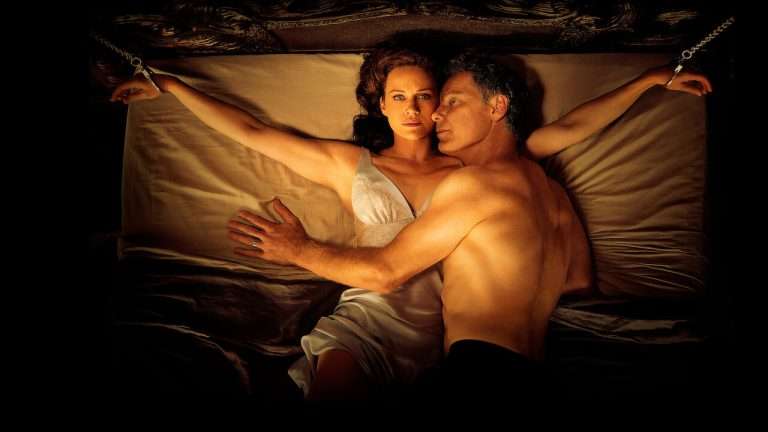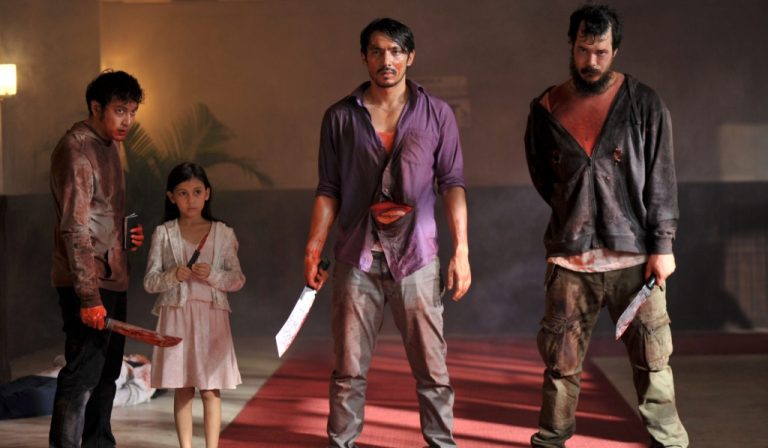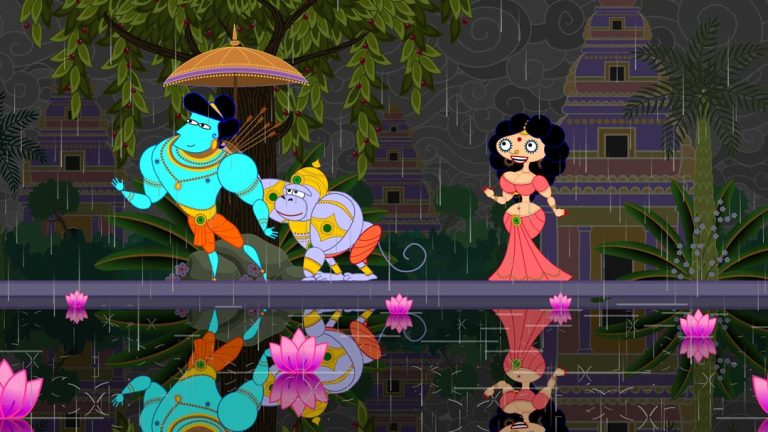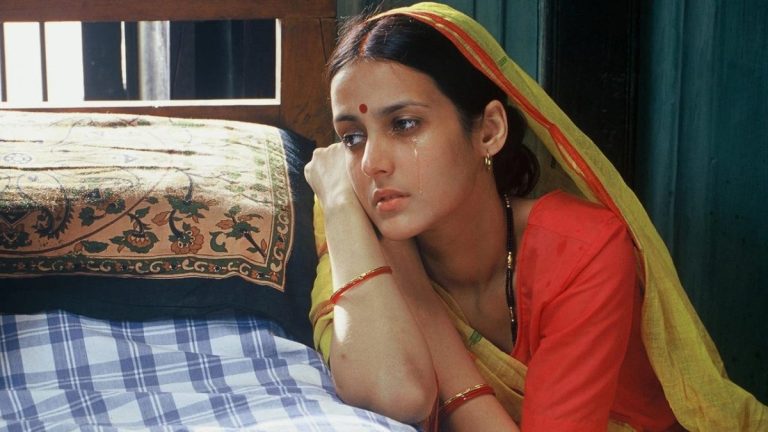Andrei Tarkovsky’s “Mirror” (Original title: Zerkalo, 1975) sets its unconventional strain when it resists a narrative closure by fragmenting memory, dream, and history into a cinematic meditation on psychic rupture. Instead of narrating a linear story, it stages the breakdown of the Imaginary, Symbolic, and Real in the life of Aleksei, Tarkovsky’s alter ego and what emerges is not just personal autobiography but a psychoanalytic genealogy of trauma as to how absence, abandonment, and blame are transmitted across generations, endlessly reflected in a cycle of repetition. Through a Lacanian lens, along with the reconsideration from a post-COVID and post-human perspective, the film reveals how fragile psychic balance is when structures collapse, and how language, memory, and cinema itself become survival mechanisms.
The opening sets the tone when Maria appears abandoned and fragile as her barn burns down, while the doctor remarks that Russians do not trust “the nature inside us.” The barn, being a religious imagery in the western religious context, its burning down at once sets the rupture of the Symbolic theme, foreshadowing what the film is going to be about. This destabilization of the Symbolic order as the paternal law vanishes, leaving the maternal figure in silence and imbalance, here, Tarkovsky overlays the voice-over poetry of his father, Arseny Tarkovsky.
In Lacanian terms, this poetry functions like the superegoic voice: melodic, haunting, filling the void left by absence. The poetry-as-voiceover is not mere ornament—it becomes the melody required for survival. When the Symbolic falters, the subject clings to scraps of rhythm, language, or signification to hold chaos at bay. Detached from the father’s physical presence, his poems become a fragile scaffolding for Aleskei as well as the audience who lives through his skin in this film.
This psychic fracture reverberates throughout the film. The strained phone call between adult Aleksei and his mother is not just a domestic quarrel but the return of the Real, where the unresolved imbalance seeded in childhood resurfaces in the present. He remains trapped in that vicious circle introduced by maternal fragility and paternal absence. Thus, with his wife Natalia, he repeats the same dynamic, enacting the repetition compulsion which Lacan describes as the reappearance of hatred and ambivalence toward the maternal figure to be projected onto the wife. Just as his father abandoned Maria, Aleksei abandons Natalia. The wound becomes repetition, and trauma becomes inheritance.
Andrei Tarkovsky on ‘Mirror’ and ‘Stalker’
The second dream sequence deepens this loop as we find Maria anxiously hunting for a non-existent typo at the printing press, compulsively turning the blame inward rather than confronting historical or circumstantial forces. This dramatizes a baffling defense where the subject seeks fault within, endlessly self-accusing, rather than recognizing the structural void without. The voice-over poetry returns here as a hypnotic overlay, cloaking chaos in rhythm and image. Tarkovsky uses poetry as the Imaginary screen, a veil that disguises trauma as beauty, rhythm, or dream. Cinema, as Tarkovsky makes it, becomes here this “unreal reality”—a surface that both reveals and disguises the fractures beneath.
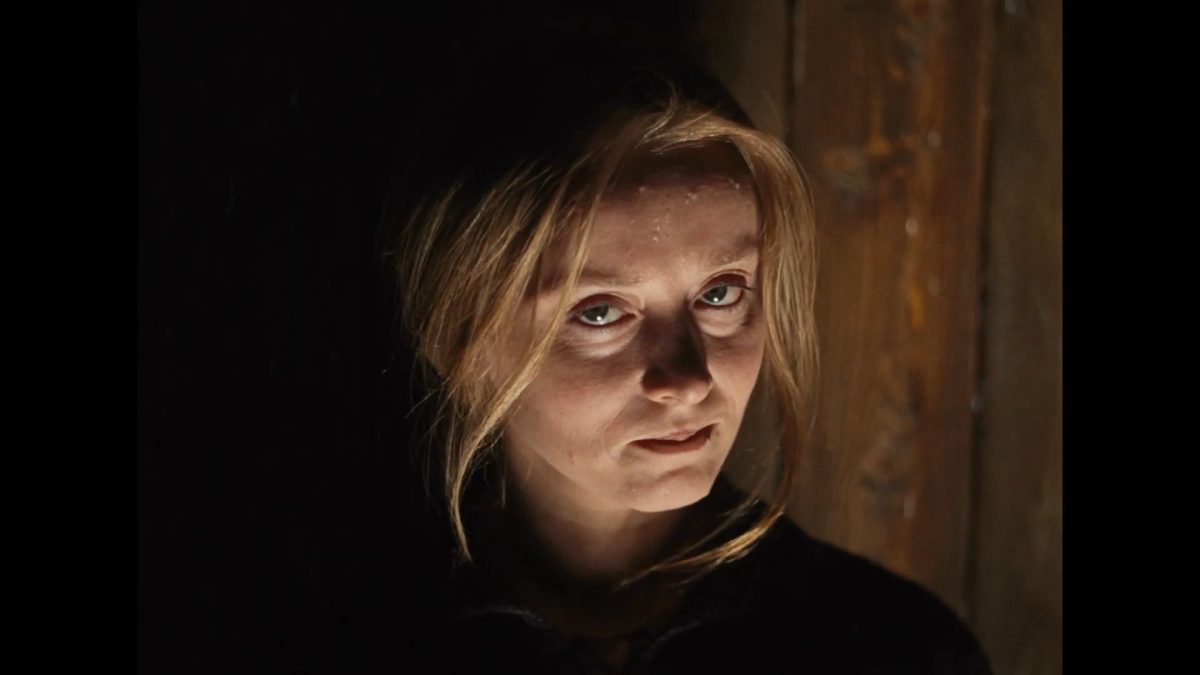
When Maria is verbally thrashed by Liza at the press, the encounter crystallizes how society enforces guilt—there is no listener, only accusers, no space for empathy, but plenty of voices to assign fault. This is the Symbolic at work as a system of judgment and surveillance, and Aleksei internalizes this structure, repeating it in his own family life. Natalia, in turn, is caught in the same fracture, vilified as Maria once was, forced into roles scripted by patriarchal absence. When she sides with Maria in the custody quarrel, refusing to align with Aleksei’s paternal logic, she asserts a different symbolic affiliation: a solidarity of women that resists the father’s order, or the voice of “God”.
Ignat, the son, extends the fracture into the next generation. He becomes the battleground for Aleksei and Natalia’s unresolved trauma. The strange woman who appears to him, instructing him to read Pushkin’s letter, functions as an intrusion of the Real: spectral, uncanny, binding the child to history and national identity. Her vanishing, leaving only condensation on a teacup, underscores how fleeting yet haunting such intrusions are. Ignat, like his father, inherits not only memory but unassimilated cultural trauma. Here, Tarkovsky makes clear that psychic wounds do not end with one generation; they ripple outward, endlessly mirrored.
The political sequences—the Spanish Civil War, the balloon ascent, the images of Loyalist exiles—externalize this trauma on the level of the superego, revealing the subject crushed not only by family rupture but by the collective weight of history. The figure who declares Russian identity as a blessing sutures Aleksei’s personal fracture to a broader cultural one, where “Mother Russia” overlays the memory of Maria. Dreams of red-haired women and the flipping of da Vinci’s sketches further dramatize Aleksei’s obsessive search for the lost feminine Ideal—the fantasy of a perfect woman who could heal the crack left by maternal ambivalence. Yet this pursuit is less reconciliation than neurosis when the endless, obsessive chase of an impossible woman, the Imaginary Ideal, is forever out of reach.
Maria’s violent outburst against the cockerel is her most fragile moment, an eruption of displaced despair when she can no longer bear a burden not of her making. This violence reveals her helplessness within a structure that has already condemned her, crystallizing the tragic truth that she is blamed for a rupture she did not cause. The ending brings three timelines into intersection. Aleksei, on his deathbed, releases a small bird, symbolically unburdening himself of his father’s guilt. Simultaneously, we see his father tenderly with Maria, as if conjuring an alternate history where rupture was avoided. In the present, the older Maria leads her grandchildren through a meadow, harmonized at last with nature. The cycle does not resolve into true harmony but stages an imagined restoration, a wish for what reality denied.
From a post-COVID vantage point, this resonates uncannily. We too have experienced a rupture in the Symbolic order—institutions shaken, routines broken, the absence of authority felt as disorientation. Like Aleksei clinging to his father’s poetry, we turn to scraps of rhythm—news, screens, fragments of language—to hold chaos at bay, like Maria hunting typos, many internalize the blame for forces beyond their control. “Mirror” thus feels prophetic as it stages how trauma, unprocessed, repeats across generations, and how the psyche constructs fragile veils—poetry, cinema, memory—to survive what cannot be mastered. Tarkovsky does not offer resolution. Instead, he holds up a fractured mirror, showing us that human life is structured by absence, repetition, and the impossible dream of reconciliation. His cinema is the rhythm that keeps chaos bearable—the fragile melody we cling to when the Symbolic collapses.

